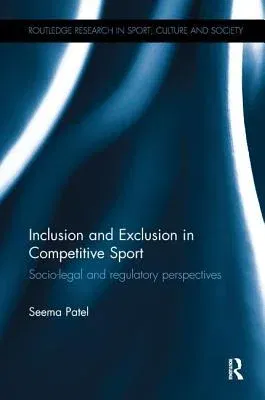Society is obsessed with categorising and treating individuals and
groups according to their physical and non-physical differences, such as
sex, gender, disability and race. This treatment can lead to the
inclusion or exclusion of an individual from the tangible and intangible
benefits of society. Where this practice becomes discriminatory, legal
frameworks can protect human rights and ensure that people are treated
with due respect for their similarities and differences. In a sporting
context, the inclusion and exclusion of athletes based upon their
differences is often a necessary part of the essence of competitive
sporting activity, arranged around rules and categories that can have an
unequal exclusionary impact on certain classes of individual. Dominant
sporting cultures can also have exclusionary effects.
This important and innovative book seeks to investigate the socio-legal
and regulatory balance between inclusion and exclusion in competitive
sport. It critically analyses a range of legal and non-legal cases
concerning sport-specific inclusion and exclusion in the areas of sex,
gender, disability and race, including those cases involving Oscar
Pistorius, Caster Semenya and Luis Suarez, to identify the extent to
which the law and sport adopt a justifiable and legitimate inclusive or
exclusive approach to participation. The book explores national and
international regulatory frameworks, identifying deficiencies and good
practice, and concludes with recommendations for regulatory reform.
Inclusion and Exclusion in Competitive Sport is important reading for
anybody with an interest in the relationship between sport and wider
society, sports development, sport management, sports law, or
socio-legal studies.

